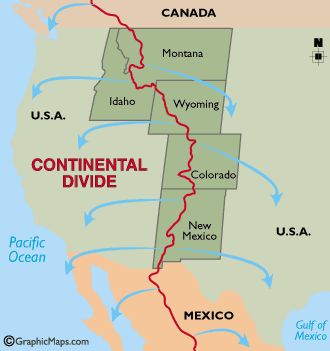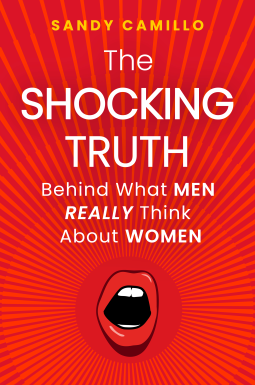After the CDT, the most often asked question was, "What's next?"
Wow, I felt I had just gone to the moon and back, and people were saying, "That's nice Francis, but what are you going to do next?"
Or as my mom put it more succinctly, "When are you going to get a job?"
Although I have many plans for the future which I will share soon, for now, I just want to share my immediate thoughts after the CDT.
During my CDT yo-yo, I spent nearly 7 months living under a tarp. Every night I scoped out a new home; every morning I turned my back on it, never to lie there again. My nomadic existence may seem more complex than settling down in one permanent home; however, it felt simpler to me. When I returned to civilization, I had to decide where to set up a semi-permanent home. There are three basic options of where you can live:
- Rural
- Suburbs
- City
While I walked the last few hundred miles of New Mexico I asked myself: Where the most environmentally sound place to live?
If you’re an ardent environmentalist, live in Manhattan
Many backpackers and environmentalists decry the loss of wilderness, yet most of them are just as guilty as the evil tree choppers. Why? Because most people don’t live in skyscrapers, the most environmentally conscious option around.
Sounds crazy? Consider a simple thought experiment I had while walking through the dry, barren wastelands of New Mexico.
Let’s say Congress passed a law that everyone who lived in a dense city had to move to a suburb or a rural setting. Suddenly the high rises of Chicago, New York, Miami, and San Francisco would empty. Those millions of people would have to buy lots out in the country and build houses. New suburban developments would rise. Sprawl would multiply; forests would diminish as humans encroach into the wilderness.
Now imagine that Congress passed the opposite law and decree that everyone who lives in a building shorter than five stories must now move into a high rise of at least 50 stories. Suddenly, all this green space would get created as millions would have to leave wilderness cabins, suburbs, and even low buildings in urban areas. You wouldn't have to get into a car to go backpacking in nature.
Moreover, many other benefits would arise:
- Because people live on top of each other, our national energy use would decline, because units on the high floors would turn down their thermostats as they leverage the rising heat from the units below them.
- With such density, municipalities can justify state of the art waste processing plants and water purification systems.
- Public transportation becomes more economically viable as density increases too, and this leads to fewer emissions and pollution per capita.
- Produce and farms can once again be near their customers, providing the freshest food.
- With more green space, species diversity and biomass can increase.
- Base jumping from your apartment would become more popular.
As obvious as all this is, most environmentalists don’t live in a high-rise, nor do they coax others to do so. Instead, they live in single-family detached homes and wail against the evils of humanity. They don't bring up the issue because they know it's an unpopular message and they would lose their audience.
One of the biggest ways to decrease your ecological footprint is to live in a skyscraper. Some pat themselves on the back thinking that because they live in a town home or have a zip code of a city, that they are environmentally responsible. Although that's a smaller footprint than being in the mountains, if you're an ardent environmentalist, you could do better.
I live in one of the densest cities in America (San Francisco) yet few of my local friends live in a building that is over five stories high. In other words, even most city dwellers aren’t living in truly dense housing. They are living in a small structure and they rally against the construction of any skyscraper near their backyard because it will block their view, create shadows, or increase congestion. But then we whine about the suburban sprawl.
Some say that they can't live in a skyscraper because they need 3,000 square feet. Dense doesn’t have to mean cramped. Manhattan millionaires live in 5,000 square feet condos on the 35th floor of a building. That’s more environmentally sound than living in 5,000 square foot single family home, complete with an acre or two in the suburbs or the country. And if you avoid the elevator, you can get a free workout every day by running up the stairs to your condo.
Confession
This has been a hard message to write because most of my beloved friends don’t live in a skyscraper and yet they all like to consider themselves environmentally conscious. They won’t like me critiquing their abode. Luckily, most of my friends don't read my web page articles because they are too long.
However, despite this diatribe, I don’t really care where you live. As I mentioned earlier, humans will do what living things do. If it feels good to live in the suburbs or to have a cabin in the woods, we’ll do that. The environment will adjust accordingly. Moreover, we’ll keep doing what gives us pleasure until the pleasure becomes the pain. And then we’ll adjust and change accordingly. We learn just like any species learns: through avoiding pain and pursuing pleasure. We are more like bacteria than we like to admit.
Therefore, I don’t hold anything against anyone living anywhere. Nor do I care if someone wants to live in a 50,000 square foot house. Life will go on no matter what.
I just don’t like listening to environmentalists wail about the ills of humanity while they eschew high rise condos and insist on having two or more children. These two actions (where you live and whether you reproduce) have far more impact than if you use compact fluorescent light bulbs or recycle. I prefer the honest redneck who says, “I don’t give a rat’s ass about the environment” than someone who lectures me or whines about the state of the world and doesn't consider that they are contributing to the state of the planet.
It’s the same reason I rarely complain about our politicians. Our environment and our politicians are simply a reflection of us. Politicians run up deficits because we want them to do it. If we really didn’t want it, we’d elect and re-elect a politician who cut government spending in half and had a budget surplus. But we won’t do that, so they do what we want them to do. It's fun and easy to blame them, but I prefer taking responsibility.
Same goes for the environment. If we really wanted to “save” the environment we would. But we really don’t. We just want to be cozy and comfortable. Given the choice between living in a spacious home with easy parking versus living in a tiny condo with no parking, we practice some cognitive dissonance and ignore the fact that we’re contributing to the sprawl and loss of wilderness habitat.
Given the choice between having children or living a childless existence in order to diminish our impact on the planet, we choose to have children. Later, we say we want to leave to "save" the planet for our grandchildren, but we continue consuming, reproducing, avoiding high rises, and voting for politicians who spend more than we have. This isn't evil. We're just being human. Or more simply: we're being a living organism. Living things look after their immediate best interest. Humans are the only species that can really plan for the far future, but we're saddled with 4 billion years of DNA code that tells us to just focus on the immediate future. So, as a species, that's what we usually do.
It's easy to read this diatribe and conclude that I'm bitter, sad, or whiny about all this. I'm not. Frankly, I really don't care. I just enjoy making these dispassionate observations for everyone to consider. I used to get excited about such issues, but after the CDT I had much time to reflect. Today I just shrug my shoulders and say, “Sprawl will continue - get used to it. Our species' relentless expansion will continue as well. Don't lament, just accept."
I'm not a defeatist. As my yo-yo of the CDT shows, I don't give up easily. If you need to hire a stubborn idiot, I'm your man.
However, there are some things that you can't change and it's better to simply accept them. The human race will change when we must.
Read more about the loss of habitat in this somewhat unbalanced Wikipedia article.
Our future homes
So where will we live in the future? Will we all be in high rises? Billions will, but they won't all be built on the land.
In the next century, we’ll start living in the oceans. As fresh, clean water becomes scarcer, humans will make advancements in desalinization and water purification. The main challenge with desalinization is that transporting the water is expensive. Imagine desalinizing the water in San Diego and then having to ship it, uphill, to a dry place like New Mexico or Arizona.
It would be so much easier to process and consume the water at its source: the ocean. Therefore, I predict that our future homes will be built on the oceans themselves. I’m no architect, but it would be extra cool if the foundation could float on the ocean. That way, if sea levels rise 10 meters, the residents won’t care.
So what will Earth look like in 2507? Our descendants will have vast metropolises built on the oceans, which comprise 70%+ of the Earth’s surface area. There’s a lot of real estate out there and as we expand, we'll bump into each other. We’ll eventually get into wars with other countries over who gets to build a metropolis in the middle of the Atlantic Ocean.
Of course, many wonder how we would feed tens of billions of humans, much living on top of the oceans. Here's one clue...
In-vitro meat
Although I’m a vegetarian, I’m looking forward to eating meat every day.
On the CDT I didn't have a pot and so I didn’t cook. I would soak food from Bob’s Red Mill such as couscous, textured vegetable protein, dry soy milk, dried fruit, granola, and protein powder. I also stuffed myself with Pemmican energy bars from Mealpack.
I ate this plant based diet partly because I dislike how meat, poultry, and fish are raised and harvested. However, in a couple of years, that argument will disappear.
Today, laboratories like New Harvest are able to take a tiny bit of muscle tissue from a cow, put it in the Petri dish, add simple planet based nutrients, and clone the cells multiple times to create the perfect hamburger.
The cloning process will have many advantages over the barbaric way we currently cultivate meat. For example, in-vitro meat will:
- Have a consistent shape or size.
- Be healthier since it won’t clone the fatty parts of the cow.
- Have the option of adding fat in whatever proportion you want.
- Reclaim vast tracks of land currently used for livestock grazing.
- Be cleaner and more hygienic than the traditional meat processing plants.
- Come in flashy colors so you can make a fashion statement when you eat!
I can’t wait to fill my backpack with in-vitro beef jerky!
I had many of these wild thoughts during the CDT, and only now have been able to share them. I hope they force you to think. Feel free to make thoughtful comments about them on my forum.





